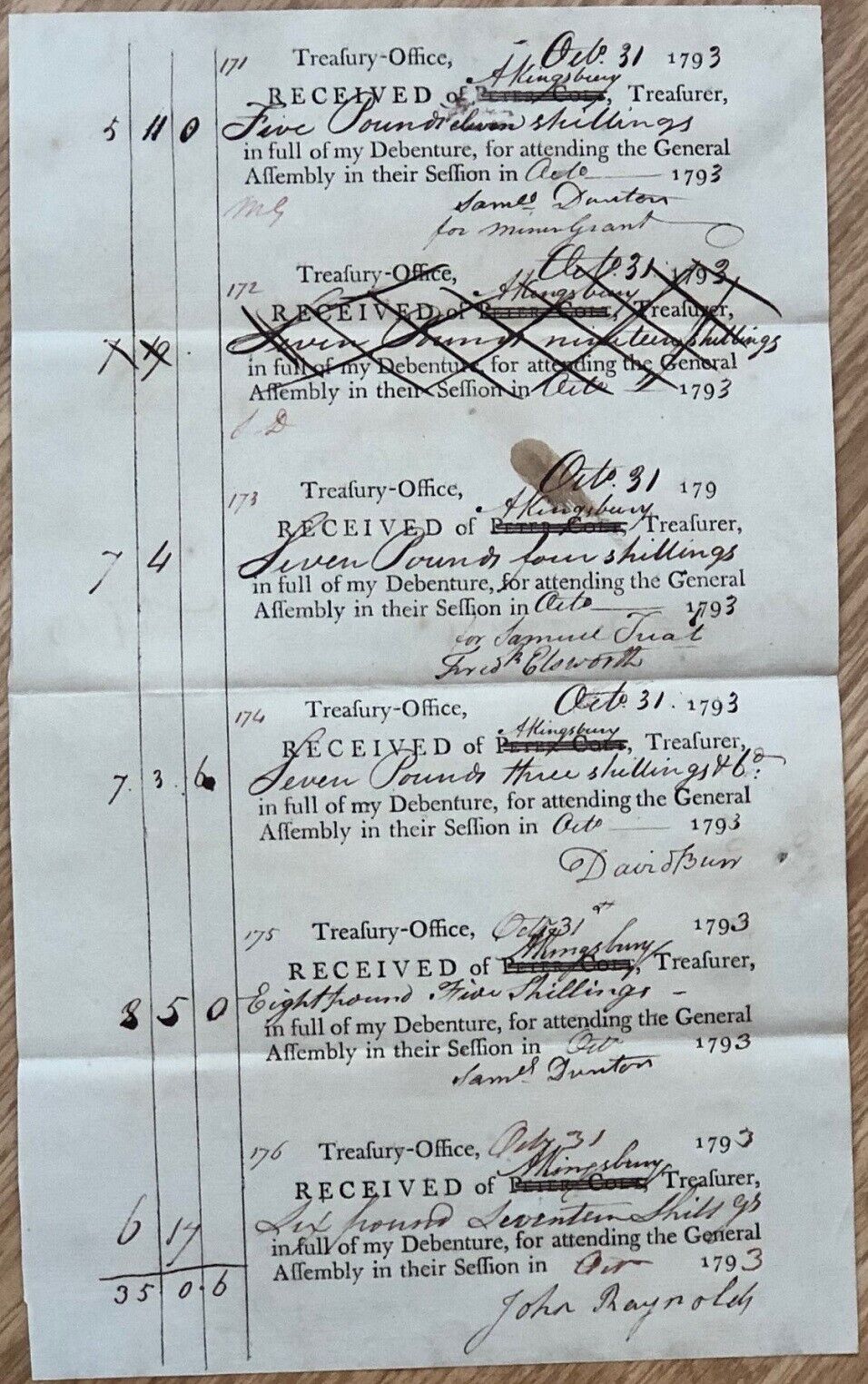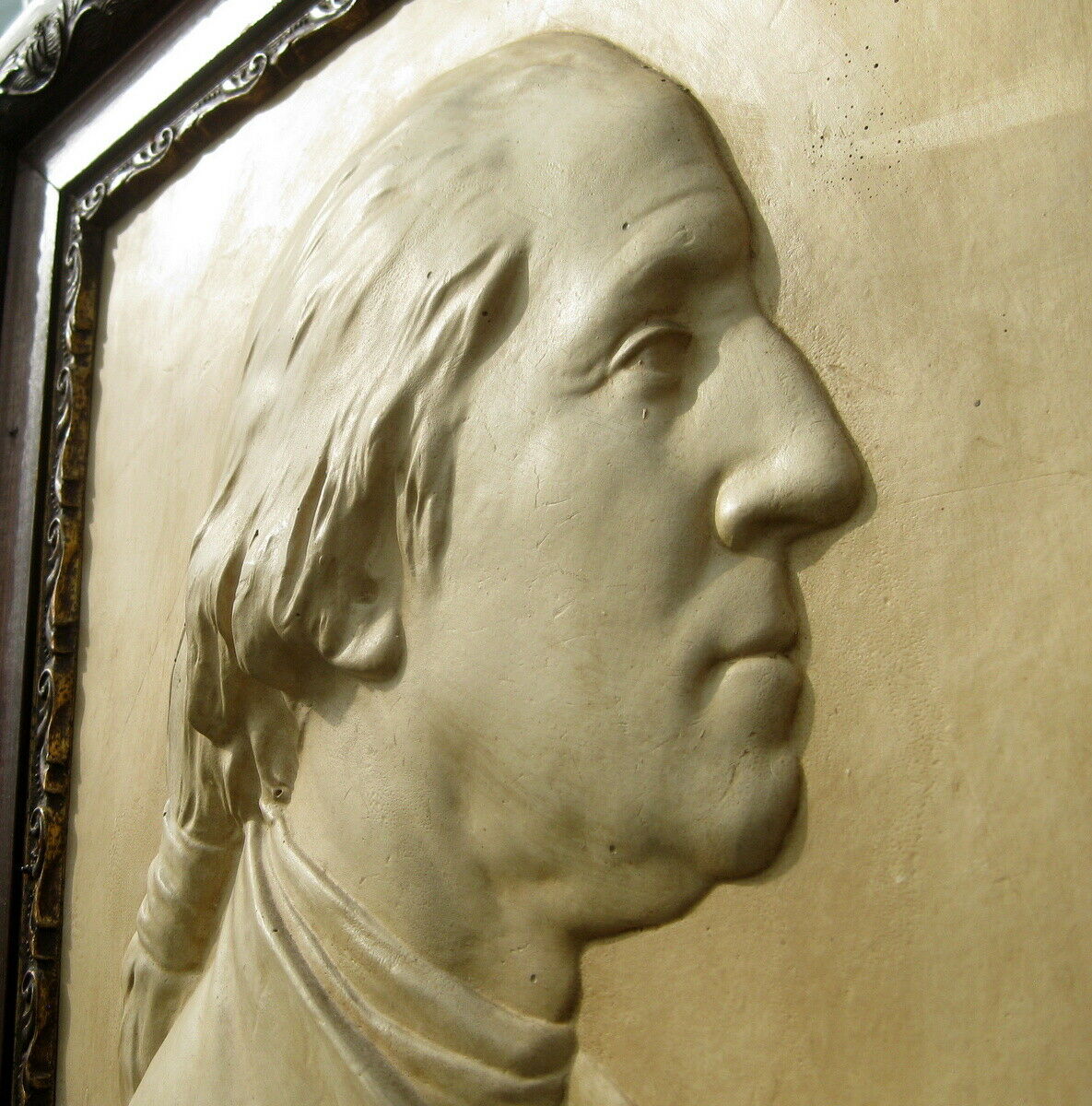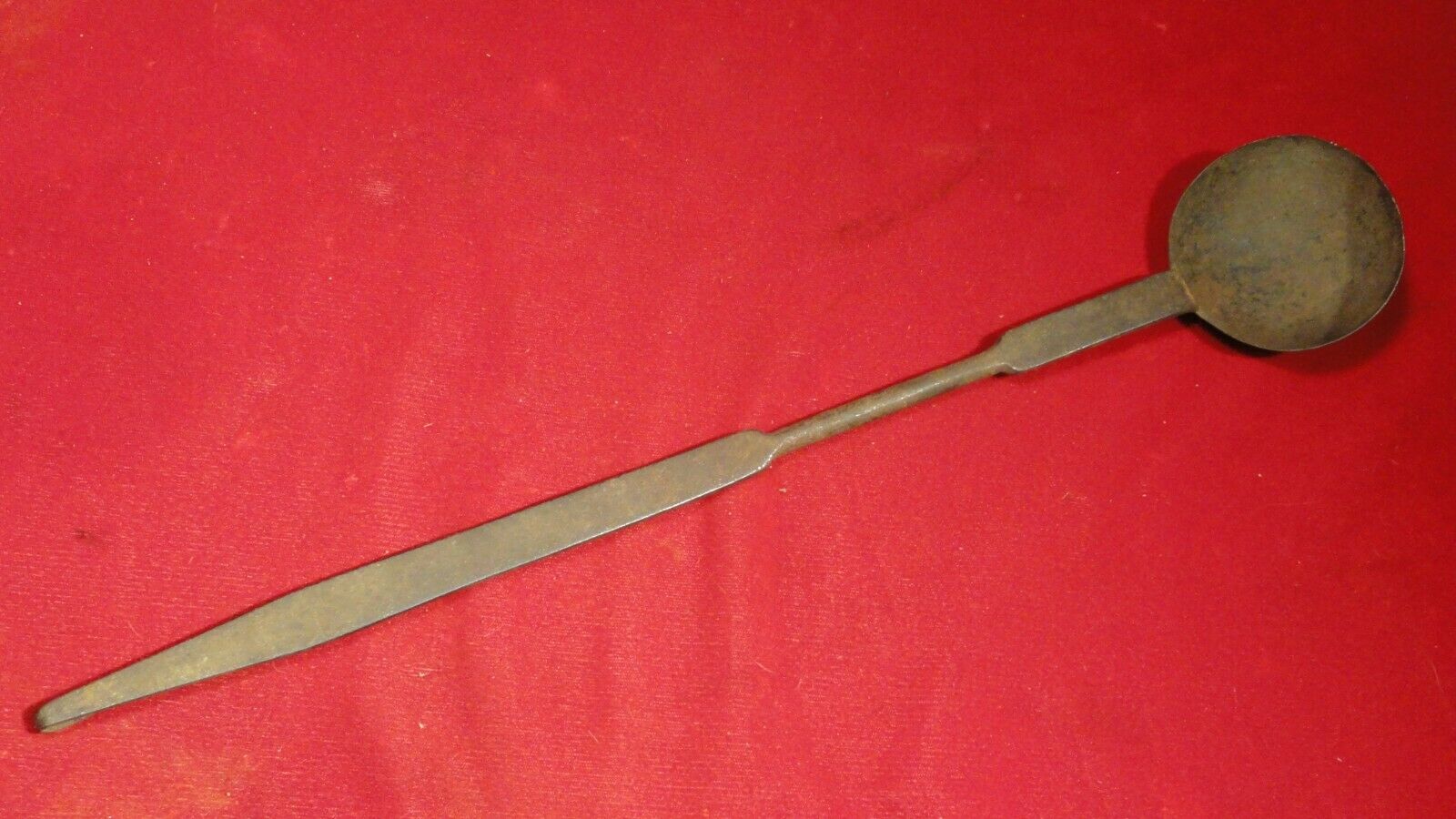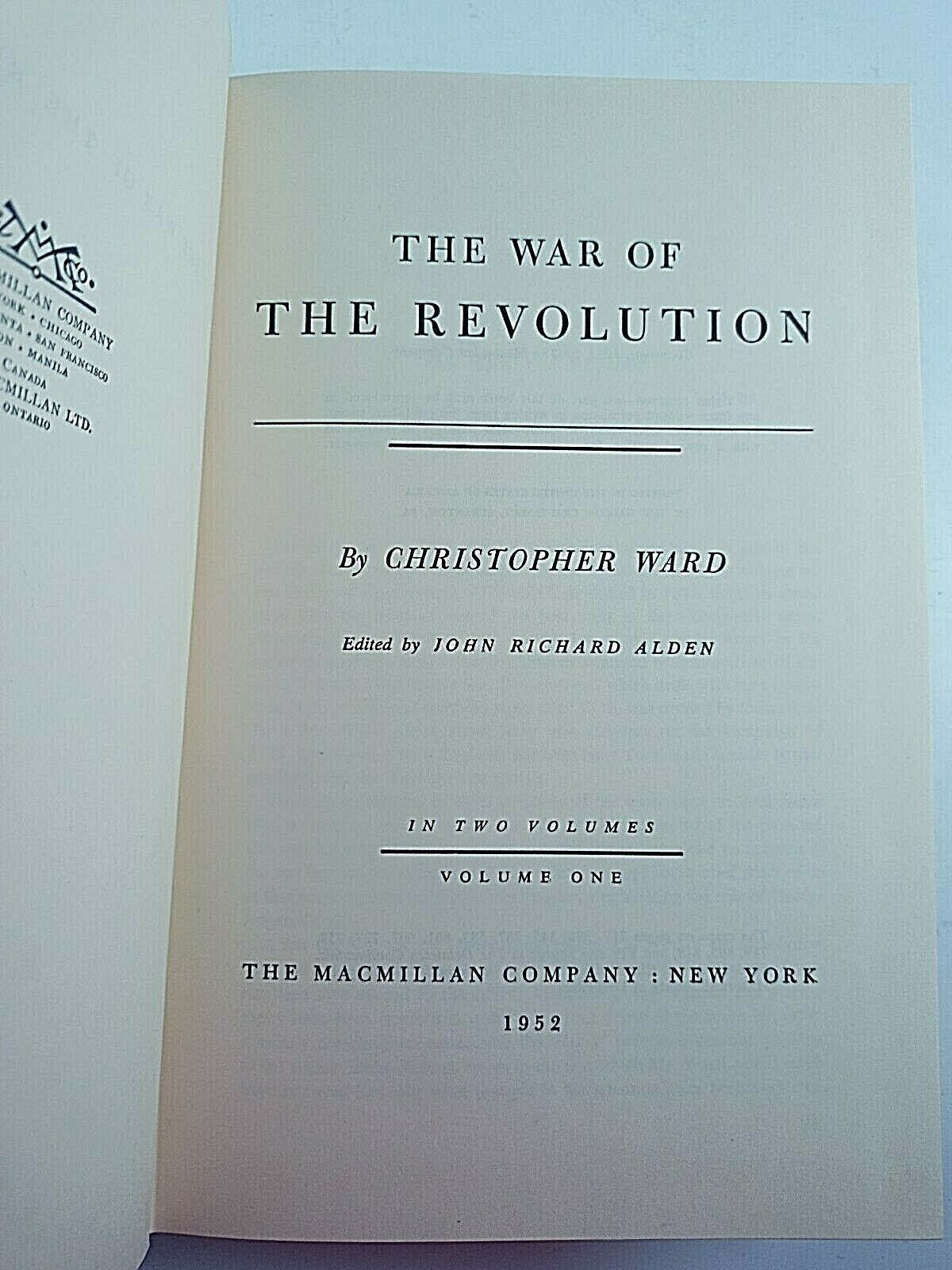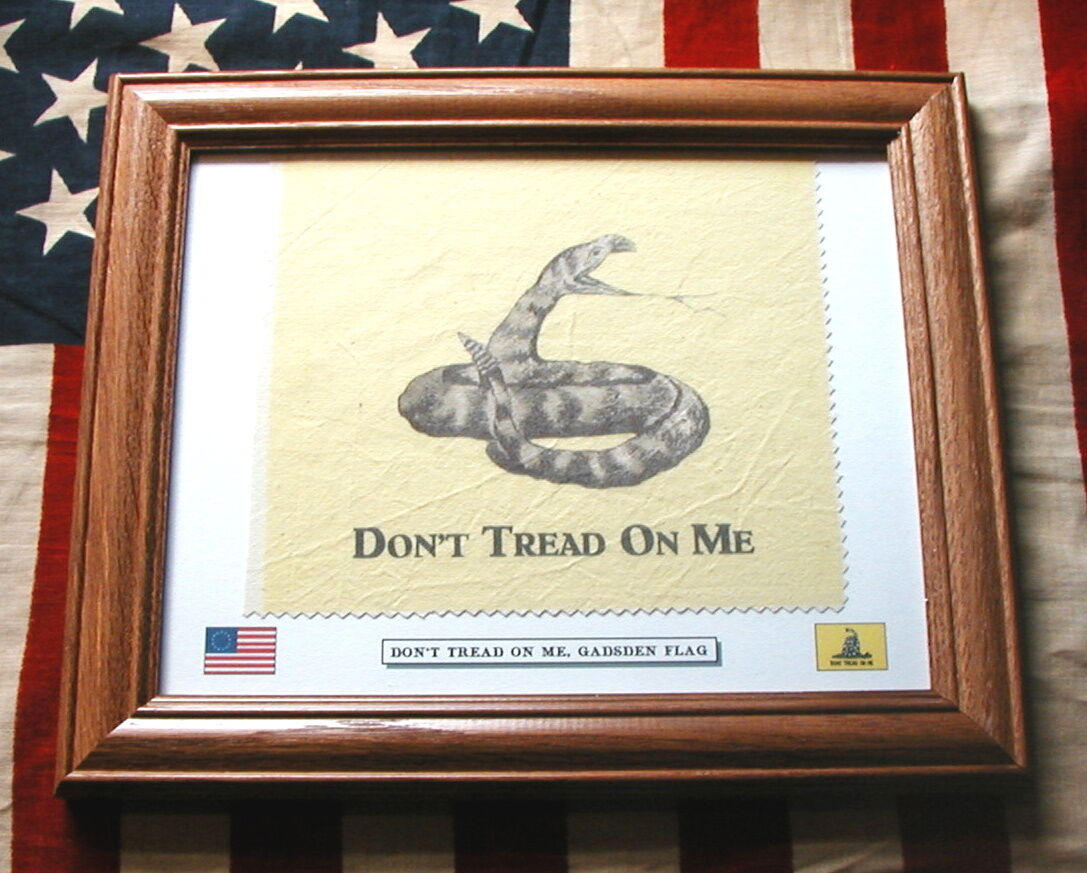-40%
c. 1779 Revolutionary War PRIVATEERS Statement of Accounts Manuscript Document
$ 1848
- Description
- Size Guide
Description
c. 1779 Revolutionary War PRIVATEERS Statement of Accounts Manuscript Document1779 American PRIVATEER’S Statement of Accounts for Captured Hession Prisoners During the Revolutionary War
(October 1779) Revolutionary War Period (Undated), Manuscript Document, Pennsylvania Privateer’s Statement of Accounts for “Guarding and Transporting Prisoners,” no date, from Mr. Francis Gurney, to Bunner, Murray & Co. (dry goods merchants of Philadelphia), Very Fine.
Important Naval related Manuscript Document on laid watermarked with “Plow” vignette Pennsylvania paper, 1 page, 8” x 7.75”, partial clear tape reinforcement on the blank reverse side folds. This Document written by Francis Gurney (1738-1815) who was a Philadelphia Businessman (Privateer connected), Civic Leader, and Revolutionary War Lieutenant Colonel, who served from the French and Indian War to the Whiskey Rebellion, and in 1799 was promoted to Brigadier General.
This historic original Revolutionary War Era Pennsylvania “Privateer’s” Naval Action Accounting Document regarding the famous American Privateer Schooner “Mars” and its capture of the British Transport Ship “Tryton” (Triton), and lists various Mars charges for costs involving Prisoners taken and transported, in its accounting to Bunner Murray & Co.. The Mars at sea and again made a telling prize. About the end of September she captured the British Transport Brig Triton, (Jonathan Cooper) with a large batch of Hessian soldiers, variously given as 200 or 214. This transport was also bound to Halifax from New York, and had a Lieutenant Colonel aboard. A month later, on 29th October 1779, Mars was again re-commissioned under its Captain Taylor. She was now listed as a brig, armed with fourteen guns and having a crew of fifty men. Her ,000 bond was signed by Leaming and Fisher.
There is a direct reference regarding the taking of this ship: British Transport Brig Triton [Polly] (Jonathan Cooper), (25th) September 1779, off the New Jersey Coast, with the Pennsylvania Privateer Sloop Comet, "Triton, British brig, bound for Halifax, prize of PA., (Ship) ‘Mars’ at NJ, 1779." See: www.awiatsea.com/Other/Hough%20List%20T.html
Lieutenant Colonel Francis Gurney (1738-1813) was a Philadelphia Businessman, Patriot Civic Leader and Officer during the Revolutionary War commanding the 11th Pennsylvania Regiment. Gurney also served earlier in his life during the French and Indian War, participating in the Canadian campaign in action against the French West Indies Islands and also in the capture of Guadeloupe. Gurney was wounded at Iron Hill on September 3, 1777, in an action preceding the major Battle of Brandywine. On October 22, 1777 Gurney resigned his officer’s commission and returned to Philadelphia, and to his working career as a merchant. During the Whiskey Rebellion of 1794, his military services were again called upon when Gurney led 600 Militia troops against rebelling farmers in Western Pennsylvania.
A remarkable, historic Revolutionary War Naval related “Privateer” document directly linked to a famous capture of the British transport ship “Triton” and its cargo including 200+ Hessian mercenary Soldiers!
See: http://www.awiatsea.com/Privateers/M/Mars%20Pennsylvania%20Schooner%20%5BTaylor%5D.html
The Schoner Mars at sea and again made a telling prize. About the end of September she captured the British Transport Brig Triton [Polly] (Jonathan Cooper) with another batch of Hessian soldiers, variously given as 200 or 214. This transport was also bound to Halifax from New York, and had a Lieutenant Colonel aboard. She was sent in to Egg Harbor, but evidently moved too slow for the Mars. Taylor took her in tow.
A British frigate appeared and began chasing. While turning to windward the Mars “was unfortunately over set by a sudden Squall of wind, by which one man was drowned. His vessel, it is said will be got up again.” Among the prisoners were a lieutenant colonel, six officers and 185 privates of the Knyphausen regiment.
Triton was libeled in New Jersey on 20 October 1779, along with six slaves captured aboard her. Both Decatur and Taylor made the libels. Trial was to be held on 22 November 1779 in Burlington.38 Triton was advertised for sale on 19 October 1779, with the sale to be held at Chestnut Neck, New Jersey on 21 October.
Francis Gurney (1738-1815), a native of Bucks County, Pa., served in the French and Indian War, and as a colonel with Pennsylvania troops during the Revolution. After the war he became a merchant in Philadelphia and for a time was warden of the post of Philadelphia, a Philadelphia alderman, and a member of the city council (Pennsylvania Magazine of History and Biography, 47 (1923), 175-76).
After the war, Gurney returned to Philadelphia where he began his career as a merchant. During the American Revolution, he donated heavily to the cause both monetarily and in military service. He served as a captain with the Grenadier Company, 3rd Regiment, Philadelphia Militia, and was later promoted to lieutenant colonel. He resigned his commission on October 22, 1777 after a failure to receive an expected promotion. Gurney served throughout the remainder of the war and its aftermath in civilian offices.
In 1794 he was in command of the 1st Regiment of the Philadelphia Brigade with the rank of colonel. Apparently Gurney had considerable difficulty maintaining discipline among his troops, for Washington wrote Hamilton, 26 Oct., on his way back to Philadelphia, that "I heard great complaints of Gurney's Corps (&c some of the Artillery) along the road to Strasburgh. . . . In some places, I was told they did not leave a plate, a spoon, a glass or a knife; and this owing, in a great measure I was informed, to their being left without Officers. At most if not all the encampments, I found the fences in a manner burnt up. I pray you to mention this to Govr. Mifflin" (Library of Congress: Hamilton Papers). In 1799, he was promoted to Brigadier General.
In addition to his other civic and military duties, Gurney served on the Board of Trustees of Dickinson College from 1798 until his death. He was often entrusted with College business in Philadelphia and Washington, D. C. Francis Gurney died on May 25, 1815.
Privateer Armed Ships operated close to shore. Brigs and brigantines were two-masted vessels, most capable of transatlantic voyages. A brig could be rigged as a brigantine. Galleys were low, single-decked vessels propelled by oars or sails which were used for coastal and river defense. Schooners were small vessels of two or more masts rigged fore and aft, capable of carrying guns and fighting at sea. Sloops were small single-masted vessels rigged fore and aft. Pilot boats were light sloops required in harbors. Ships were ocean-going vessels of three or more masts, though large brigs or schooners were sometimes listed as ships. Ships used for prisons by the British and by the Americans were generally de-masted hulks. Prison ships records of their prisoners are valuable.
Item Number: 99582
ADD Early_American_Auctions to your list of FAVORITE SELLER
VIEW Other Auction Items offered by Early_American_Auctions
Complete Table of Contents, Current Offerings and Additional Images
can be found at Early American History Auctions online
Over 1,000 items currently online !



